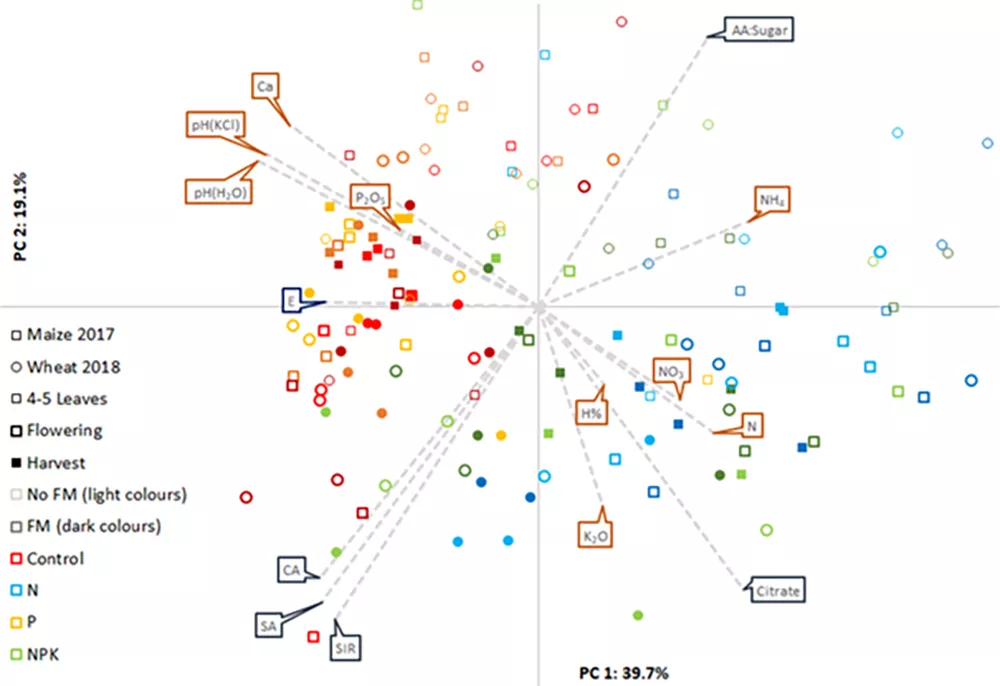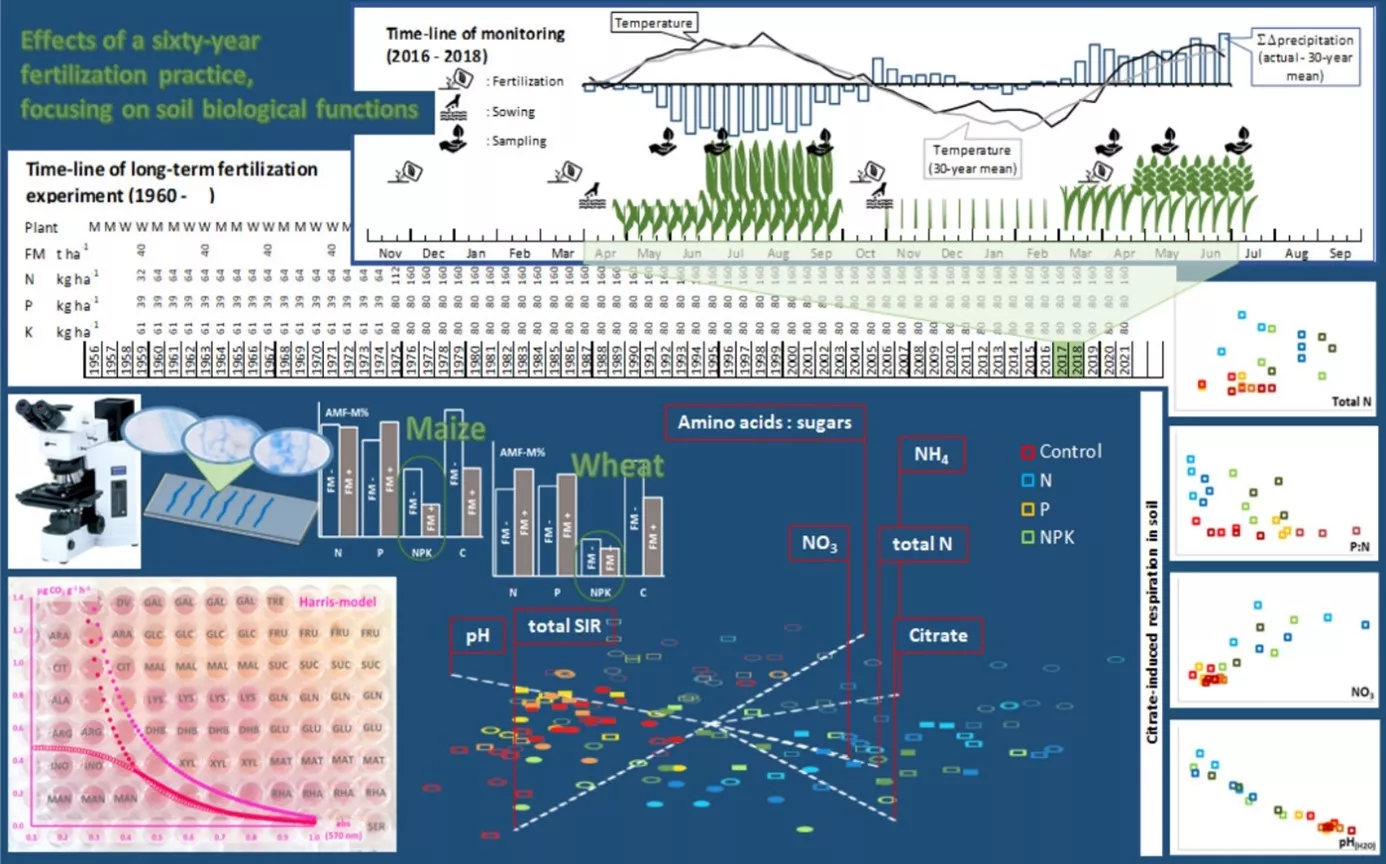Researchers from the Institute for Soil Sciences and the Agricultural Institute of the HUN-REN Centre for Agricultural Research (HUN-REN CAR), as well as from the Eötvös Loránd University published the results of soil microbiological measurements in a 60-year-old fertilization experiment in the prestigious journal PLOS ONE. Their study aimed to survey the long-term effects of fertilization practices on the functional diversity of soil microbiota.

A 60-year-old fertilization experiment with mineral fertilizers, farmyard manure and combined treatments was sampled in two consecutive years in maize (Zea mays L.) and wheat (Triticum aestivum L.). Soil chemical properties, plant growth and physiological parameters were measured. The MicroRespTM method was applied to assess the community level physiological profiles (CLPPs) of the rhizosphere soil, and the arbuscular mycorrhizal fungal (AMF) colonization of the roots was determined.
Fertilization treatments caused long-term changes in some biological parameters such as MicroRespTM parameters, citrate utilization, total substrate-induced respiration value, and the ratio of utilization of amino acids and sugars. The rate of AMF colonization responded mainly to plant nutrition status and plant requirements, suggesting a plant-mediated effect in the case of mycorrhiza. Mineral nitrogen fertilization and soil acidification were found to be the main factors affecting the catabolic activity of soil microbiota, while AMF colonization responded to the balance of plant nutrition.
Publication:
Füzy, A., Parádi, I., Kelemen, B., Kovács, R., Cseresnyés, I., Szili-Kovács, T., Árendás T., Fodor N., Takács, T. (2023). Soil biological activity after a sixty-year fertilization practice in a wheat-maize crop rotation. Plos One, 18(9), e0292125.
